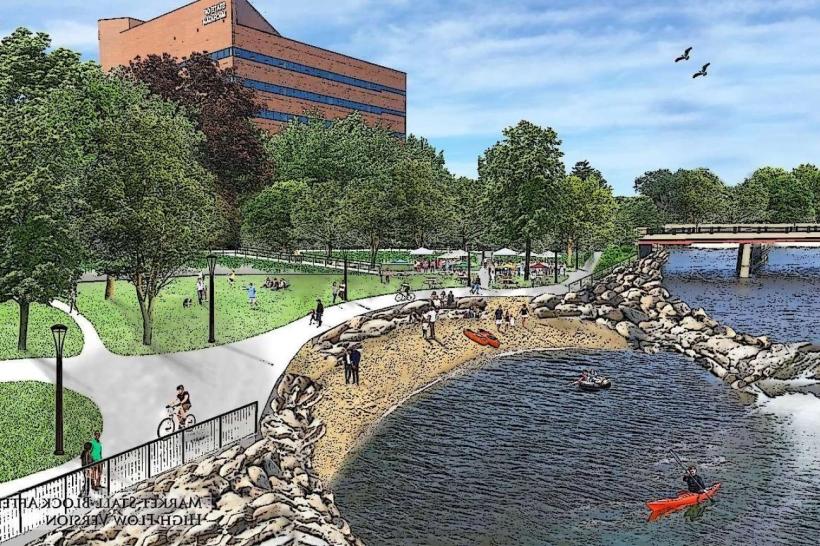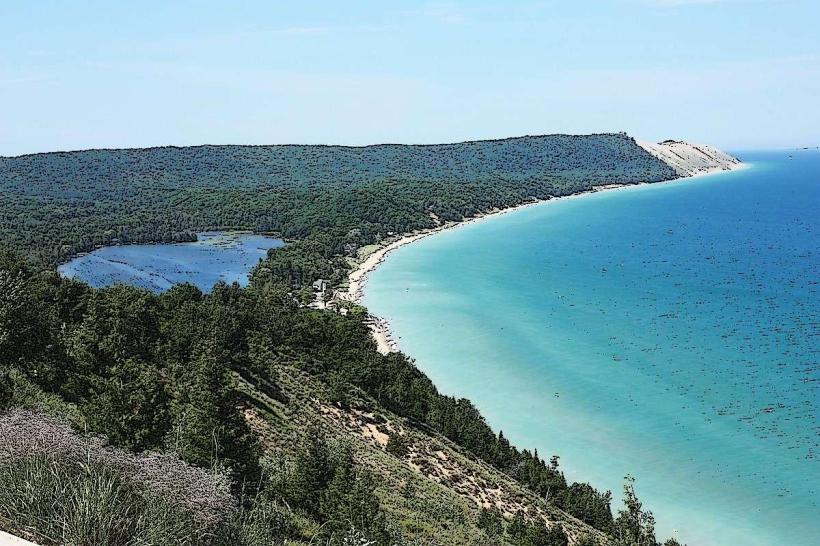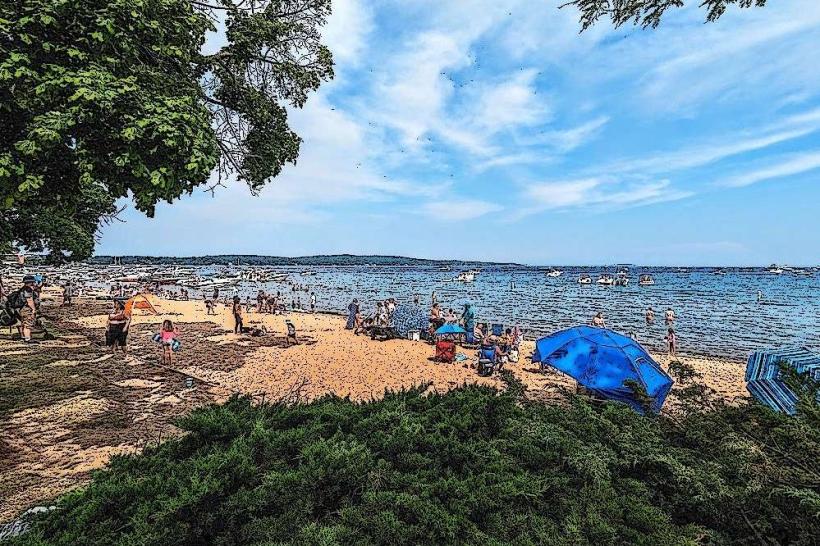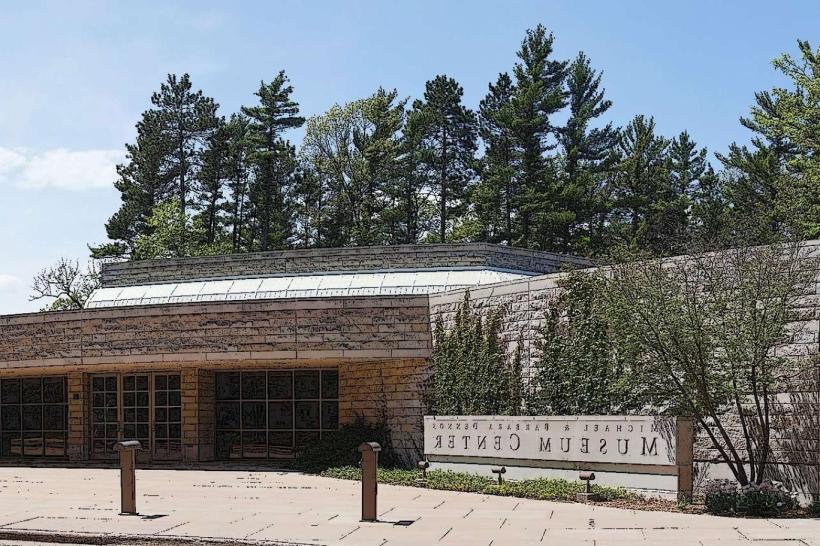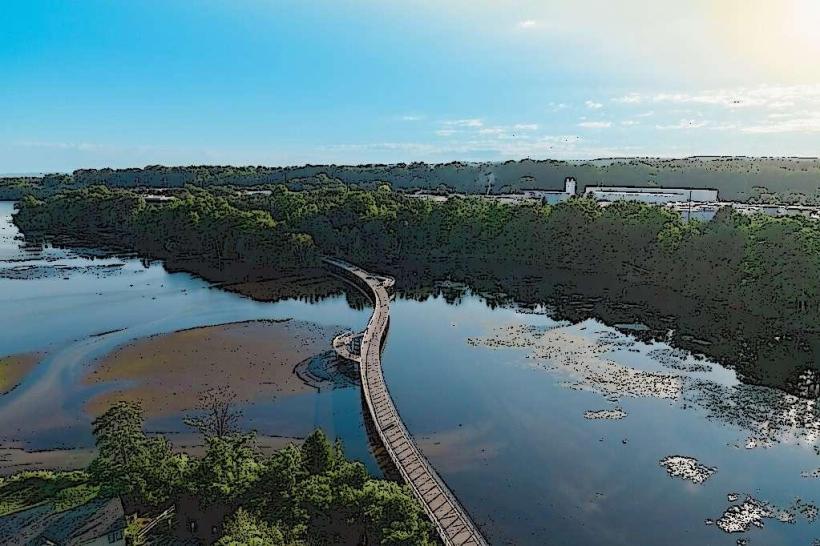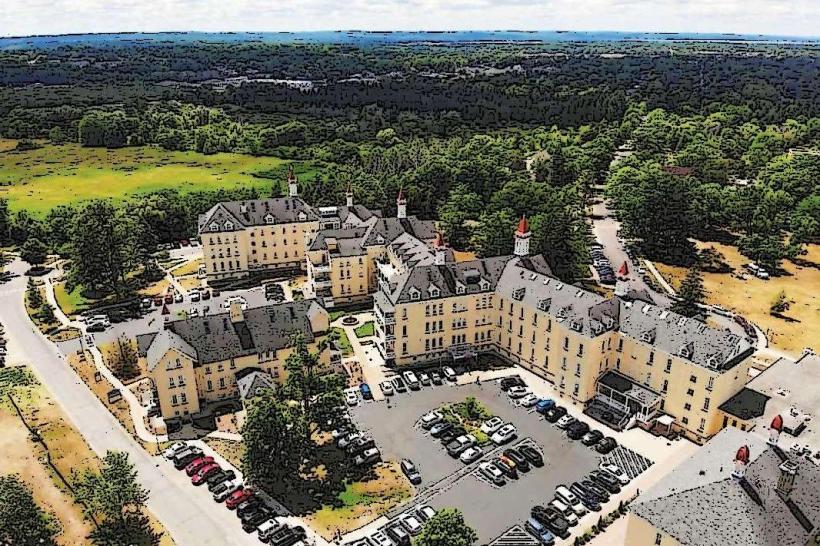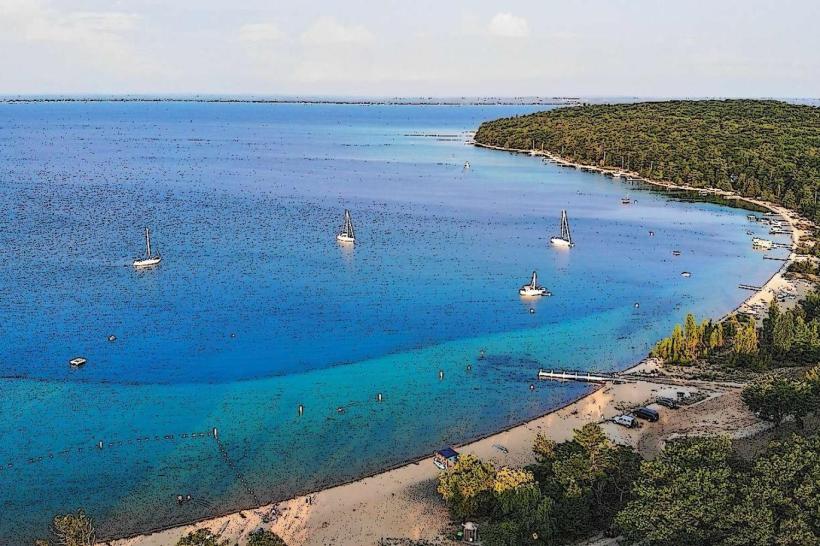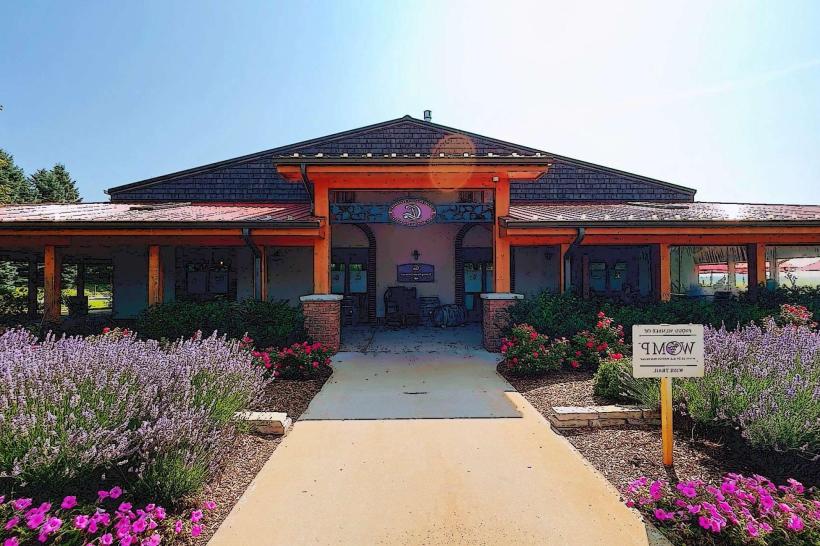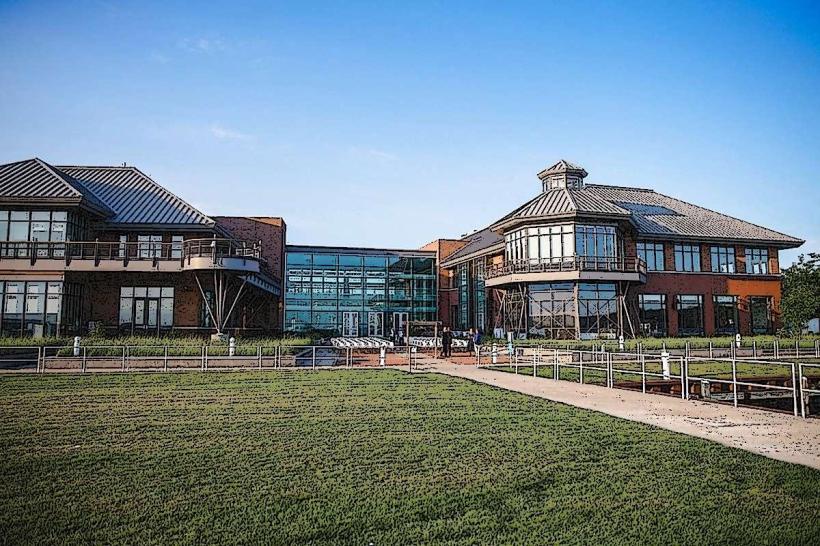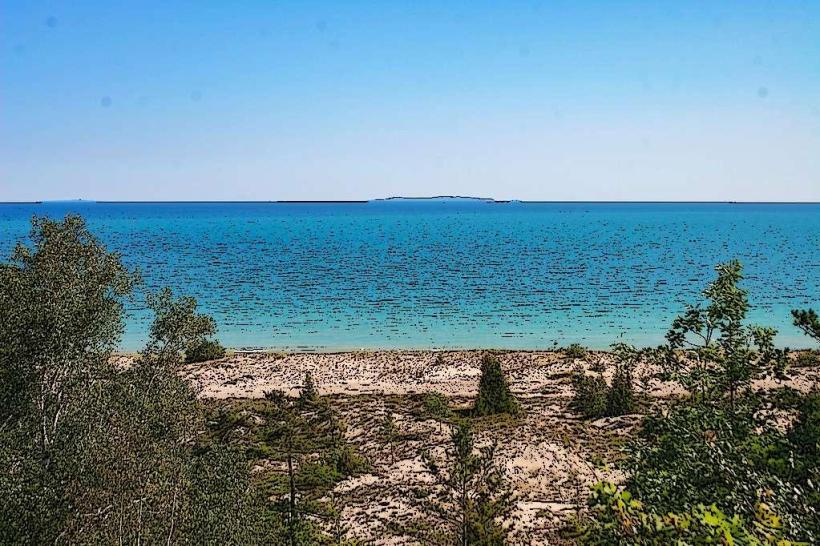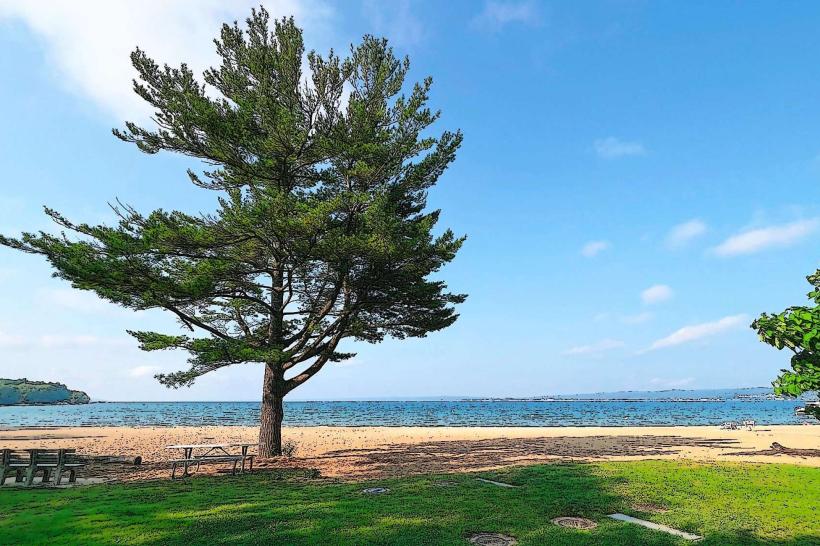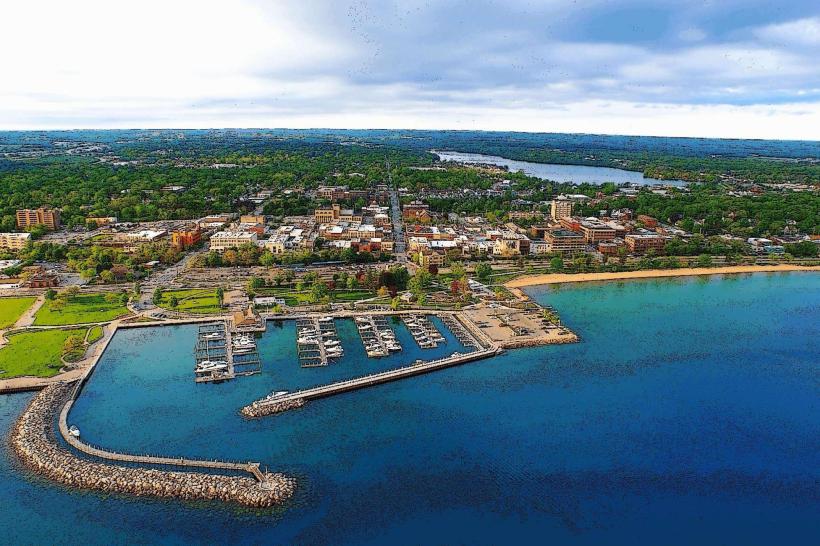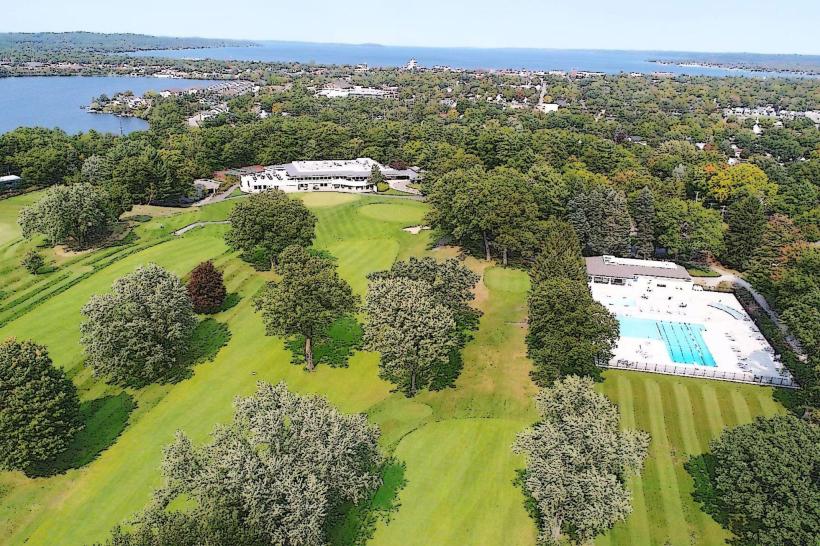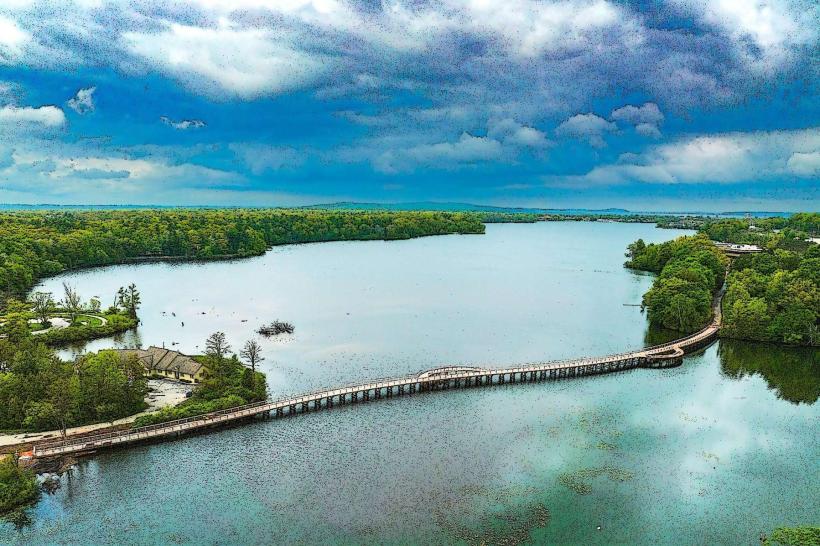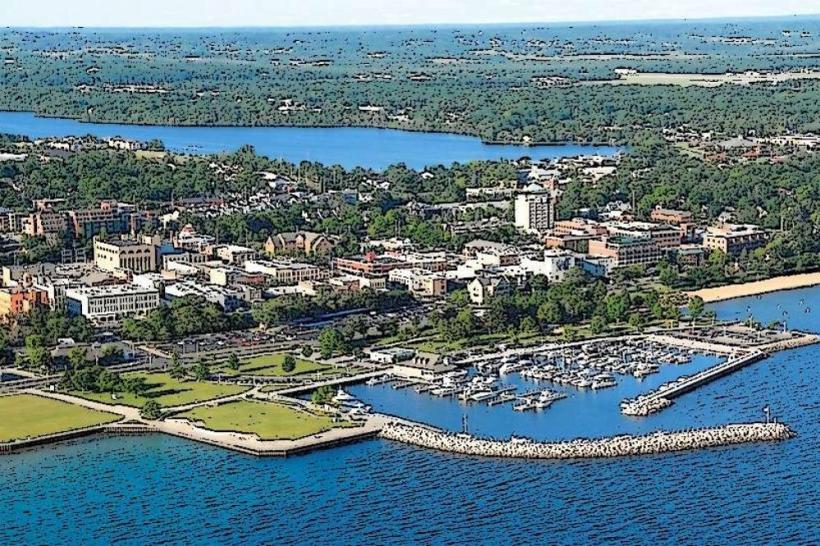Information
Landmark: Grand Traverse BayCity: Traverse City
Country: USA Michigan
Continent: North America
Grand Traverse Bay, Traverse City, USA Michigan, North America
Grand Traverse Bay is a prominent and expansive freshwater bay located in the northwestern part of Michigan’s Lower Peninsula. It is an integral feature of the Great Lakes region, specifically connected to Lake Michigan. The bay is notable for its unique shape, ecological diversity, and recreational opportunities, playing a vital role in the surrounding communities’ natural environment and economy.
Geography and Physical Features
Grand Traverse Bay extends approximately 32 miles in length and varies in width, averaging around 7 miles at its widest point. The bay is divided into two distinct arms by the Old Mission Peninsula: the East Arm and the West Arm. This peninsula extends northward into the bay, creating a fork-like formation.
The shoreline around the bay is characterized by a mix of sandy beaches, rocky cliffs, wooded areas, and gently rolling hills. The bay itself has a relatively deep water profile compared to other inland water bodies, supporting diverse aquatic life and providing ideal conditions for various water activities.
Hydrology and Environmental Characteristics
The bay serves as an important hydrological feature, receiving inflows from numerous small rivers and streams from the surrounding watershed. Its waters are typically cold and clear, with seasonal variations that support a wide range of freshwater species.
The ecosystem of Grand Traverse Bay includes numerous fish species such as lake trout, whitefish, perch, and smallmouth bass, making it a popular destination for both recreational and commercial fishing. The surrounding wetlands and shoreline habitats also provide crucial nesting and feeding grounds for migratory birds and other wildlife.
Climate Influence
The bay influences the local climate of the region by moderating temperatures, especially during summer and winter. Its large water surface absorbs heat in the summer, cooling the surrounding areas, while in winter, the water body helps to moderate freezing temperatures. This microclimate effect supports the growth of unique agricultural products, including cherries and grapes, which thrive in the nearby orchards and vineyards.
Recreational and Economic Importance
Grand Traverse Bay is central to the region’s tourism and recreation industries. The bay’s clear waters and scenic surroundings attract boating, sailing, kayaking, and paddleboarding enthusiasts throughout the warmer months. Numerous public access points and marinas allow residents and visitors to engage in water-based activities easily.
Fishing is both a cultural and economic activity, with sport fishing tournaments and commercial harvests contributing to local livelihoods. Additionally, the bay supports tourism by providing a beautiful setting for hiking trails, waterfront parks, and scenic drives along its shores.
Environmental Conservation
Efforts to protect and preserve Grand Traverse Bay’s water quality and natural habitats have been ongoing due to concerns about pollution, invasive species, and shoreline development. Local organizations and governmental bodies work collaboratively on monitoring water quality, managing invasive aquatic plants and animals, and promoting sustainable land use practices to ensure the bay’s health for future generations.
Summary
Grand Traverse Bay is a geographically significant, ecologically rich, and culturally important water body in northern Michigan. Its distinct two-arm shape, moderated climate effects, and abundant recreational opportunities make it a cornerstone of the region’s natural environment and a key contributor to the local economy and way of life.

